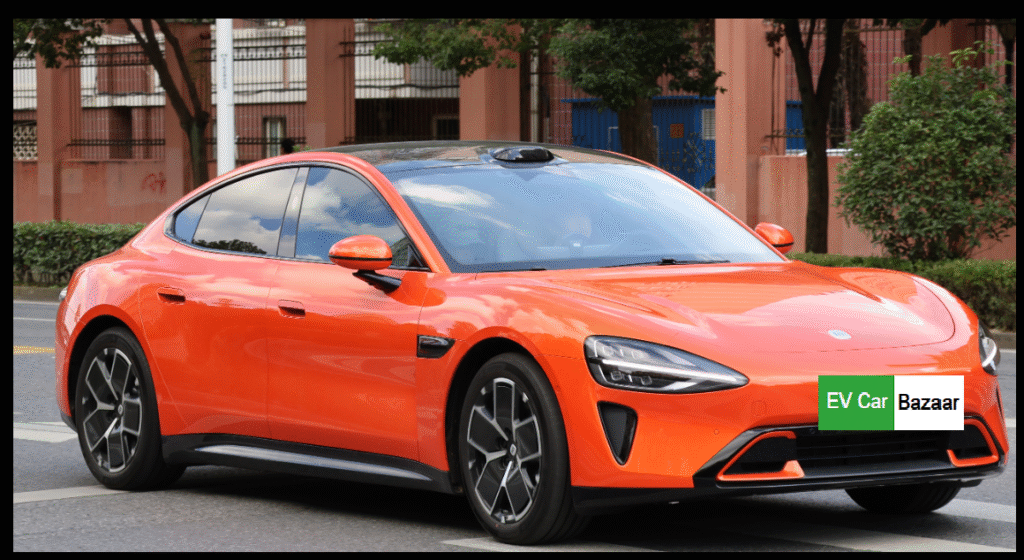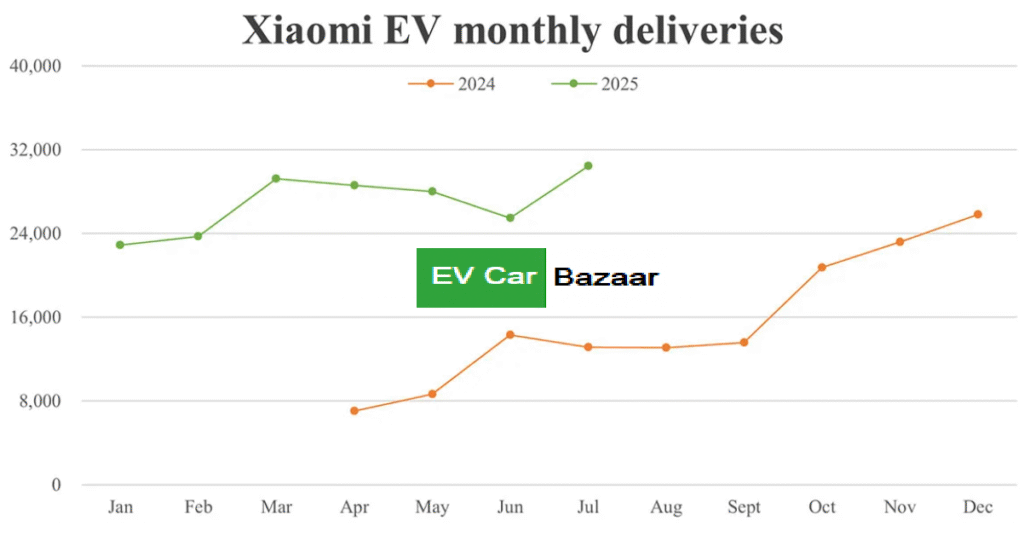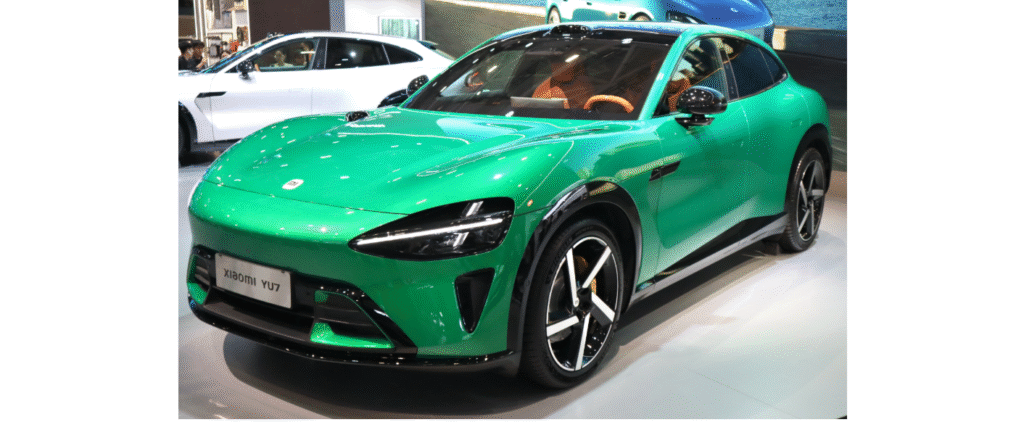
In the fast-paced world of electric vehicles, few stories have captured global attention like Xiaomi’s meteoric rise. Once known primarily for its smartphones and consumer electronics. The Chinese tech giant has rapidly transformed into a formidable EV contender.

August 2025 marked a remarkable milestone: Xiaomi delivered over 30,000 electric vehicles for the second consecutive month signaling not just growing consumer demand, but a serious challenge to established EV leaders such as Tesla, BYD, XPeng and Nio.
MI EV journey began in March 2024 with the launch of the SU7 electric sedan. Positioned as a direct competitor to the Tesla Model 3, the SU7 impressed buyers with its sleek design, competitive pricing and advanced tech features. Building on this momentum the company unveiled the SU7 Ultra in early 2025 a high-performance variant capable of accelerating from 0 to 100km/h in just 2.1 seconds. This model further solidified Xiaomi’s reputation for blending performance with affordability.

The true turning point came with the launch of the YU7 electric SUV in June 2025. The initial response was overwhelming within the first three minutes of pre-orders Xiaomi recorded 200,000 firm bookings. By the end of the first 18hours this number had surged past 240,000. The massive demand reflected the trust and anticipation consumers now associate with Xiaomi, as well as the rising popularity of EVs in China’s increasingly competitive automotive landscape.

The surge in demand presented production challenges. Delivery times for the YU7 stretched to over 56 weeks, highlighting the difficulties of scaling production to meet unprecedented consumer interest. Recognizing this Xiaomi accelerated Phase II of its Beijing Yizhuang manufacturing facility in mid-2025 aiming to streamline production and reduce bottlenecks. Simultaneously, the company expanded its retail presence opening 18 new stores across 105 Chinese cities in August and planning an additional 32 outlets in September. These strategic moves not only improved customer access but also reinforced Xiaomi’s long-term commitment to the EV market.

Xiaomi’s performance is significant. In August 2025 Chinese EV manufacturers XPeng and Nio reported deliveries of 37,709 and 31,305 vehicles respectively. Xiaomi’s consistent performance places it firmly in competition with these industry leaders signaling a shift in global EV market dynamics. Several factors contribute to this success: MI focus on in-house manufacturing ensures quality control and cost efficiency its pricing strategy makes EVs accessible to a broader audience and the integration of cutting-edge technology such as the 800V architecture and advanced highway-assisted driving (HAD) systems enhances consumer appeal.
Xiaomi is eyeing global expansion with plans to enter the European EV market by 2027. By leveraging its expertise in consumer electronics and IoT ecosystems. The company intends to offer a seamless integration of smart technologies within its vehicles, delivering a unique driving experience. This approach could redefine how consumers perceive and interact with EVs, bridging the gap between automotive innovation and digital lifestyle.
Xiaomi’s journey from smartphone giant to EV powerhouse underscores its agility, strategic foresight and commitment to innovation. As global demand for electric vehicles continues to grow Xiaomi expanding influence is poised to reshape competitive dynamics, challenge traditional automotive giants and accelerate the transition toward a more electrified future.

Xiaomi’s August 2025 milestone of surpassing 30,000 EV deliveries is more than just a statistic. It is a testament to the company’s vision, its capacity to innovate and its growing impact on the global EV market. For consumers and industry observers alike Xiaomi’s trajectory offers a glimpse into the future of electric mobility.where technology, performance and accessibility converge.
While EV momentum is reshaping China’s auto landscape the ripple effects are being felt in India as well. India is on the brink of its own EV revolution with sales of electric two-wheelers already crossing the millionunit mark in FY 2024 and passenger EV sales climbing steadily every quarter. Automakers like Tata Motors, Mahindra and even global players such as Hyundai and BYD are preparing aggressive product roadmaps to capture the world’s third-largest car market. If mi expands its EV footprint to India in the future it could leverage its already-strong smartphone ecosystem and retail network to disrupt the market. The lessons from China where consumer trust, pricing and ecosystem integration define success will be invaluable for India’s EV journey.

